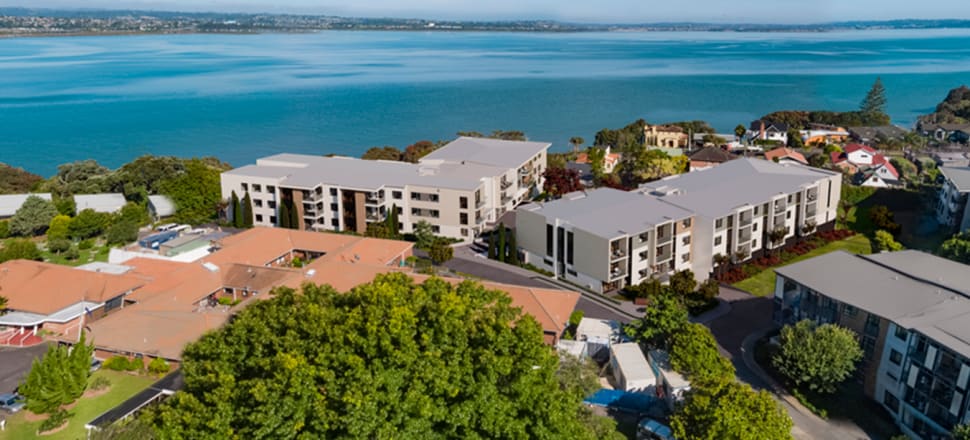
Analysis appears to show a mandated repayment period would do more good than bad with retirement units
Proposed changes to retirement village law stopped short of any major altering of the commercial model, but analysis appears to back mandated buybacks of retirement units.
After more than a year of intensive campaigning by a resident group, the Review of the Retirement Villages Act 2003: options for change paper was released by association housing minister Barbara Edmonds yesterday.
READ MORE: * Cuts in new beds a hit to equitable access to aged care * An uncomfortable truth that will change our housing landscape * Te Whatu Ora ‘deliberately underfunding us’, aged care group claims
The document gave several options on issues in its scope, such as when to stop fees after a unit is vacated, the creation of a standard occupation agreement, maintenance, dispute resolution and how to best handle repayment when a resident moves out.
However, the proposals didn’t touch two of the Retirement Village Resident Association’s (RVRA) biggest gripes in its campaign to get the act reviewed, being residents getting a share of any capital gains and any changes applying retrospectively to existing contracts.
The issue of repayments on vacation of a retirement village unit, be it by death or moving to a higher level of care, was approached sensitively in the discussion document.
When residents move into a retirement village they pay a sum of money for the right to live in their unit.
When the resident leaves, the money is repaid to the resident or their estate, minus a deferred management fee, which is kept by the operator.
The village operator doesn’t have to repay the money until the unit is resold, and if it takes an extended period of time to resell, it can create a significant burden for the outgoing resident.

During the select committee process, RVRA pushed for a “gold standard” compulsory repayment after 28 days, but the discussion paper options were for mandatory repayment within six to 12 months, payment of interest on capital sums after six to 12 months or just to disallow charging weekly fees during this time.
The Retirement Village Association (RVA), which represents the interests of retirement village owners, favours the payment of interest after a unit has sat unsold for nine months or more.
It argued a full repayment being mandated would put undue financial stress on the sector and require massive cash reserves.
A cost-benefit analysis prepared by business consulting firm MartinJenkins released alongside the consultation report found that though all options had varying degrees of negative value implications, the mandatory payment option provided the highest level of benefits.
It ranked highly in providing certainty for residents and operators and offsetting financial impacts for residents while also greatly increasing incentives to maintain and improve villages to make them more attractive to prospective residents.
The upkeep issue was one raised by RVRA during its campaign, arguing older units were likely to be sidelined as operators pushed to fill newer, more costly units.
However, it was also identified as having a moderate impact on the ability of some operators to maintain or expand their operations.
MartinJenkins estimated the six-month repayment option would create a 2023 cash flow impact of $722 million, and the 12-month option would have a $328m cash flow impact.
RVRA chief executive Nigel Matthews said on balance, this showed there was a strong case for a mandated repayment period, “It gives you a pretty good indication of their leaning I would say”.
Retirement Village Association president Graham Wilkinson said about 70 percent of its members had some form of compensation for sales that took longer than expected.
“Given that around three-quarters of all sales are settled within a six-month period, we think that putting in a compulsory buyback will create solvency issues no matter who you are,” Wilkinson said.
He said the cost incurred with holding an adequate credit facility to ensure you could make payments would potentially be clawed back through a larger deferred management fee.
“We say penalise the people that take longer and make them pay interest.”
For two groups with such different viewpoints on many issues, both the RVA and RVRA see the discussion document and the direction of the review as a win.
Repayments aside, Wilkinson said the association (RVA) was pleased with the scope of the review and found it validating.
“The discussion documents are rolling out a number of things which the RVA already does. We're pleased it's picked up those things, we're very happy they could become proposed to everyone.
“What we're particularly pleased about is that the integrity of the model has been upheld. There's no reference to try to change the commercial model around capital gains, which would have major ramifications.”
Matthews said the residents association was delighted with the proposals, particularly around the maintenance of chattels and mandating that damage caused by mobility devices be included as fair wear and tear.
Both Matthews and Wilkinson see the issue of capital gains as something that would be addressed down the track once the Government has greater levels of advice.







